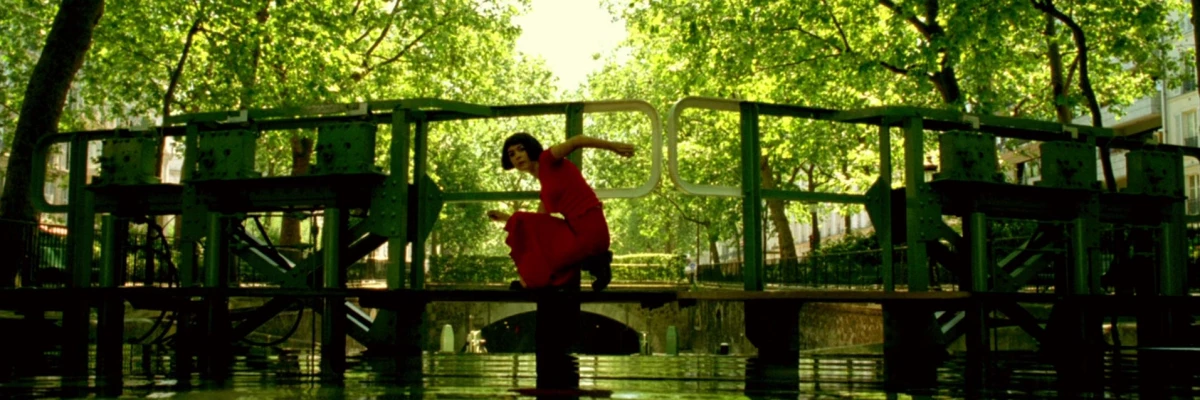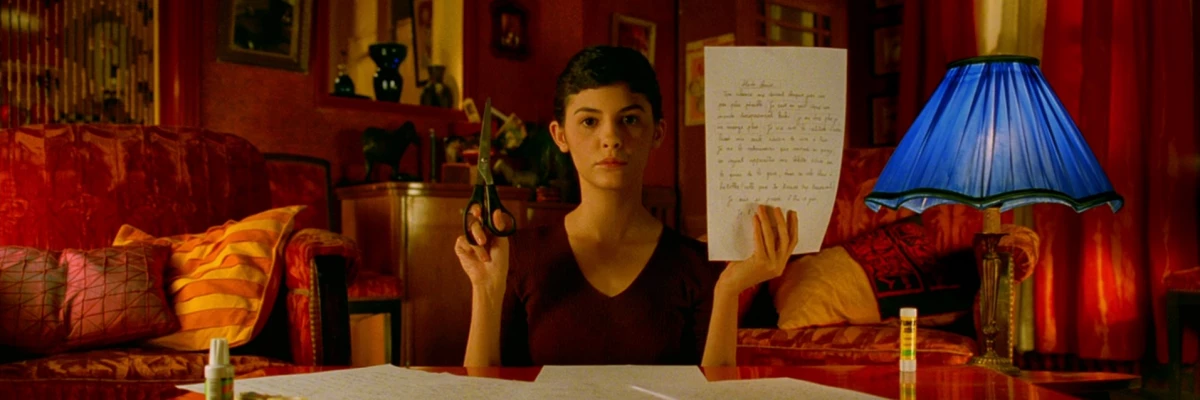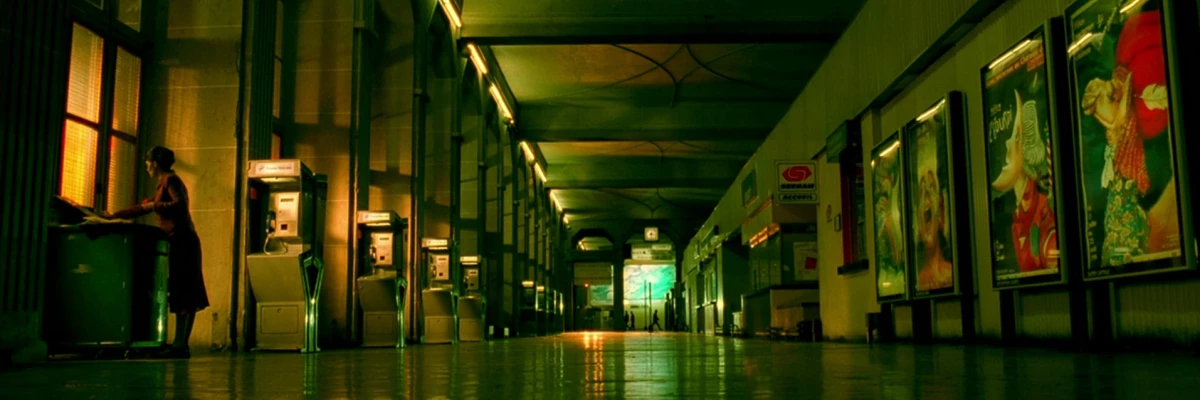Amelie
Amelie [Le Fabuleux Destin d'Amélie Poulain] became an instant classic when it saw its release in the early '00s. Back then, it grew from sleeper hit to full-blown arthouse killer in little over a year. It is one of those films that slowly faded away over time though. You realize it's special, but that warm, fuzzy feeling diminishes the longer you postpone the inevitable rewatch. So I was in fact quite curious to see what my impression would be almost 10 years after I last saw it.

After the disastrous release of Alien 4, Jean-Pierre Jeunet went right back to the drawing board to set a couple of things straight. He had already shown the world he was a great director, but people forget easily and Alien 4 was the kind of film that could ruin someone's career. So he worked hard on his comeback, and what a comeback that was. For many people, Amélie is the best film he ever made (and even one of the best films overall).
And truth be told, it probably is his most complete, accomplished film. There are so many small details, so many creative ideas, and nifty little surprises and they're all handled so meticulously that it borders on the feverishly neurotic. The pacing is perfect, nothing feels out of place or superfluous, and scattered throughout the film there are ample pay-offs that keep you wanting to see more. Amélie is probably one of the most consistent, "perfect" films I've ever seen.
The film follows the exploits of a dreamy, otherworldly girl (Amélie) on a quest to improve the lives of the people that surround her. Through a series of weird and comical schemes, she tries to edge those she loves in a direction where she hopes they'll find happiness. In reality, she is simply compensating for the emptiness that resides inside her. When she finally meets a boy that could give her life meaning, Amélie finds herself strangely unable to get her own life back on track.

Lush and detailed doesn't even start to describe the visual splendor that is crammed in every single frame of the film. Rich and extravagant settings (they even physically cleaned up Paris for some of the shoots), majestic camera work, beautiful and warm green and red hues, and some very neat editing tricks make Le Fabuleux Destin d'Amélie Poulain one of the most stunning visual experiences ever put on film.
The soundtrack by Yann Tiersen is just as memorable and went on to live a life of its own, becoming so popular that its reach extended far beyond the confines of the film's universe. Some of the songs also made it into other films (Good Bye Lenin! springs to mind), but they never approached the same effect or atmosphere as they did in Amélie. Tiersen's music is a perfect match for the idyllic vision Jeunet paints of Paris and the two will be forever inseparable from each other.
A final factor in the film's success is Audrey Tautou's performance. I'm not a big fan of her, but it's impossible to argue the impact she has had on this film. It became such a defining role for Tautou that she would have a hard time shedding the Amélie character in the years to come. The rest of the cast is great too, with fine performances of Mathieu Kassovitz, Jamel Debbouze, and Jeunet regular Dominique Pinon, but in the end, they are all overshadowed by Tautou.

So if everything's great and magical about this film, why is it not higher on my list of favorites? Well, It's not that easy to pinpoint, but there's a slight discrepancy between the woolly cuteness of Amélie's character and the cheekier, slightly darker humor that is layered on top of the film. And it's exactly that part that doesn't really stick after the film's finished, leaving something that's just a little too rosy and lovey-dovey for my taste. In a sense it's hard to fault the film for it because the cheeky, juicy bits are actually there, they just don't linger as they are overpowered by the naiveté of Tautou's character.
It's a very tiny quibble that never detracts while watching the film, but it's a feeling that keeps creeping up on me as time goes by. I almost feel bad for bringing it up because there is so much to love here, but ultimately it's why I prefer Jeunet's Delicatessen over this one and it does affect the way I think back on Le Fabuleux Destin d'Amélie Poulain. Apart from that, Jeunet delivers 120 minutes of fine-tuned awe and wonder, wrapped up in an extremely appealing package. Required viewing for everyone who is getting serious about cinema.
